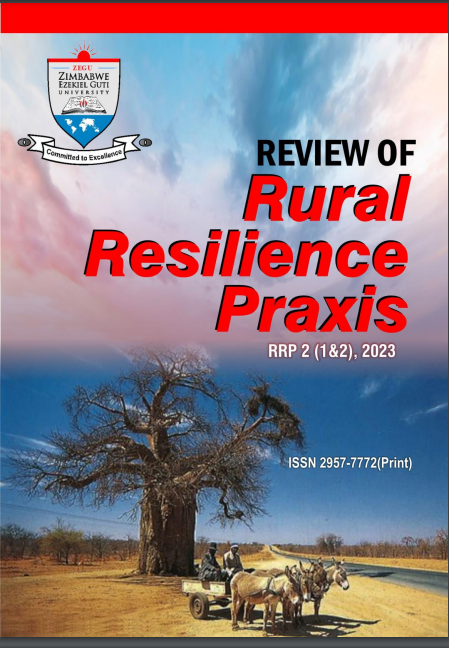Psycho-social factors influencing effective collaboration of stakeholders in community-based projects lessons from scope Zimbabwe
DOI:
https://doi.org/10.71458/17swz994Keywords:
innovation, systems design, community engagement, sustainability, resilience, trans-disciplinary researchAbstract
Community-based projects are instrumental in achieving desirable economic changes in communities. To ensure effectiveness of communitybased projects, a trans-disciplinary (TD) approach is preferred since it promotes active engagement that produces collaborative knowledge generation and engenders multiple lens of interpretation and analysis. One area where community-based projects are plausible is in projects for sustainable use of the environment. Considering the consequences of global warming and climate change, Scope-Zimbabwe, a local NonGovernmental Organisation (NGO) in Zimbabwe, embarked on a project called Seeding Local Cultures (SLC). The project was aimed at generating knowledge on how to effectively implement community involvement and inclusive participation in the implementation of permaculture through their local schools and colleges. This study focuses on a writer’s workshop that was held to design a facilitator’s manual and student handbook to be used to implement SLC. The motivation of this study was identifying the psycho-social dynamics that were at play in the workshop that affected collaboration of the various stakeholders. A case study approach was utilised in this study since it affords an in-depth insight of a phenomena of interest. A TD approach informed the type of collaboration expected where engagements needed to transcend disciplinary boundaries in the creation of knowledge. Observations and focus group discussions were used for data collection. Braun and Clarke’s (2006) thematic analysis framework was utilised for data analysis. Themes identified included; community engagement impact processes and methods to be used; attitudes, knowledge, beliefs and motivation; attitudes, motivation and resource mobilisation and use; and skills needs for effective community project management The study concluded that a systems analysis of the processes involved with permaculture projects to ensure deep understanding of various stakeholders’ needs, values and roles and knowledge and awareness of technical guidelines to be used for permaculture and indigenous knowledge systems Community engagement was found to be crucial in effective management of the SLC project. Effective resource mobilisation to eliminate the donor syndrome that threatens the longevity of community projects was also identified. Effective communication among the various stakeholders was found to be key in effective resolution of conflicts.




